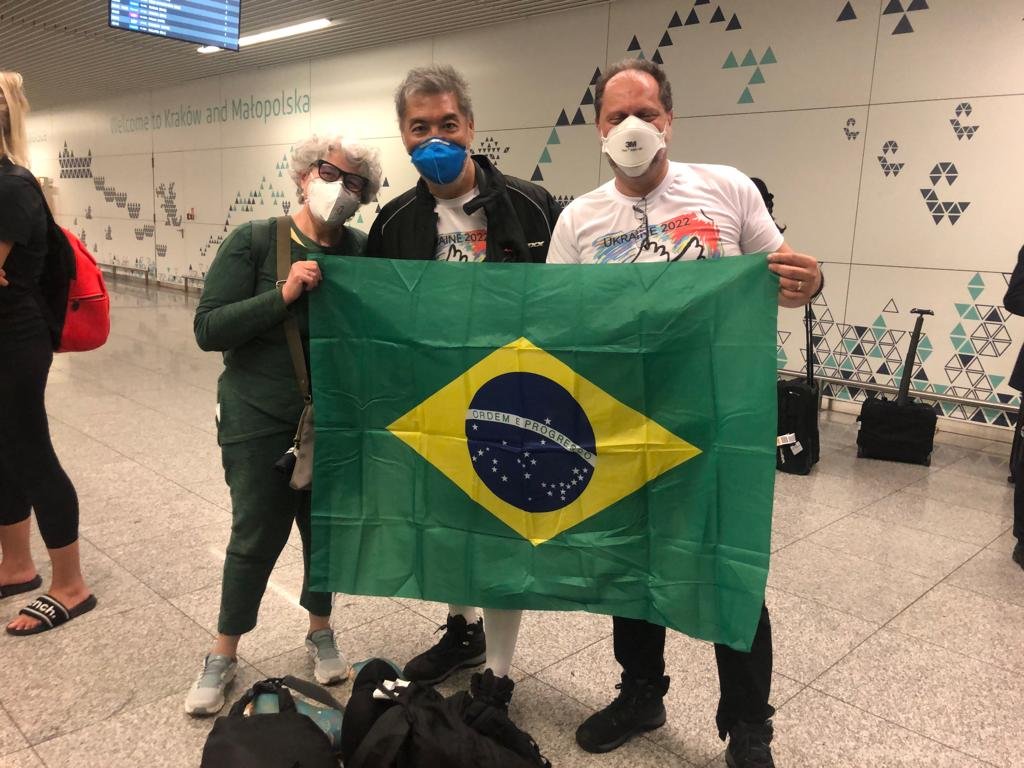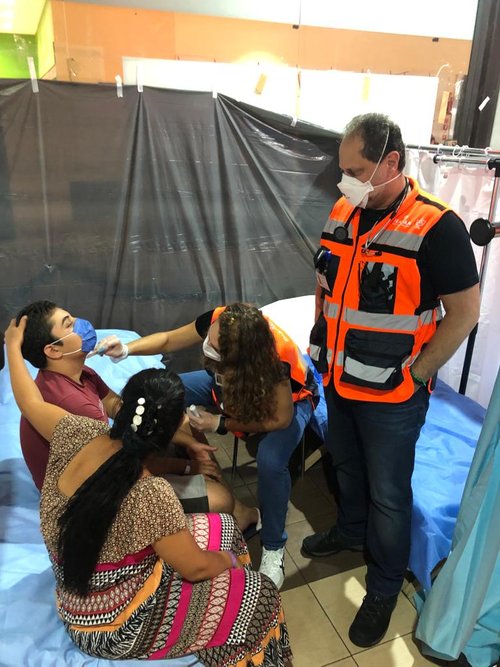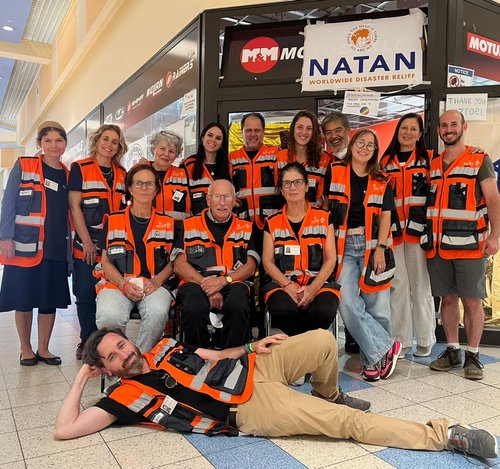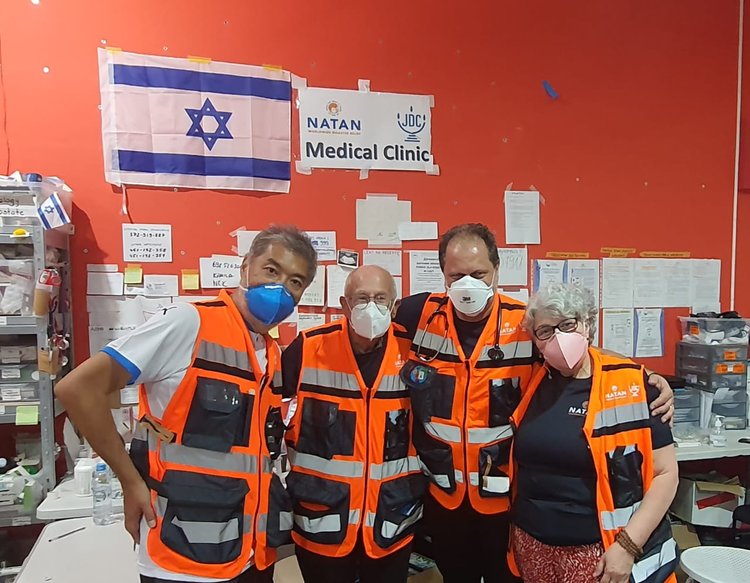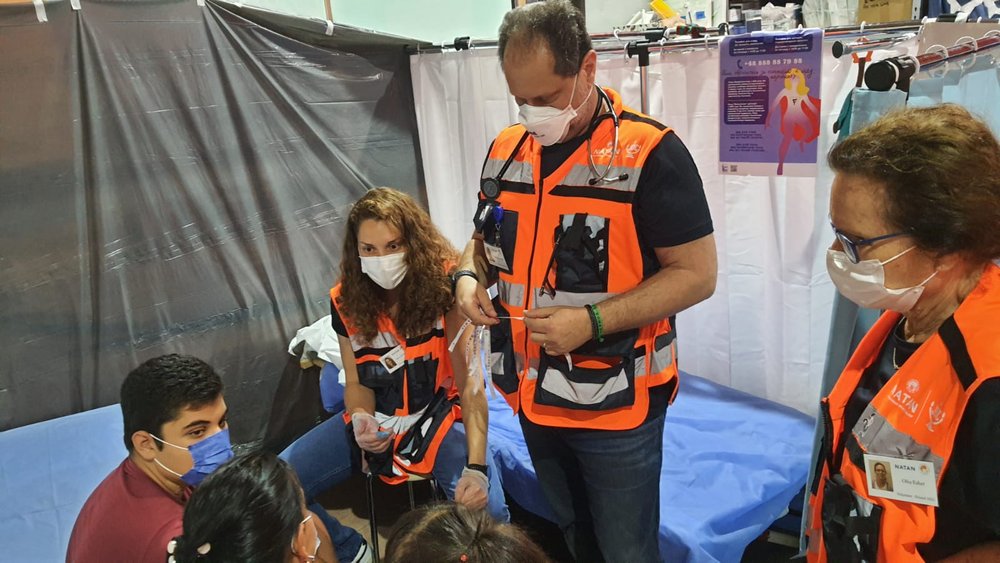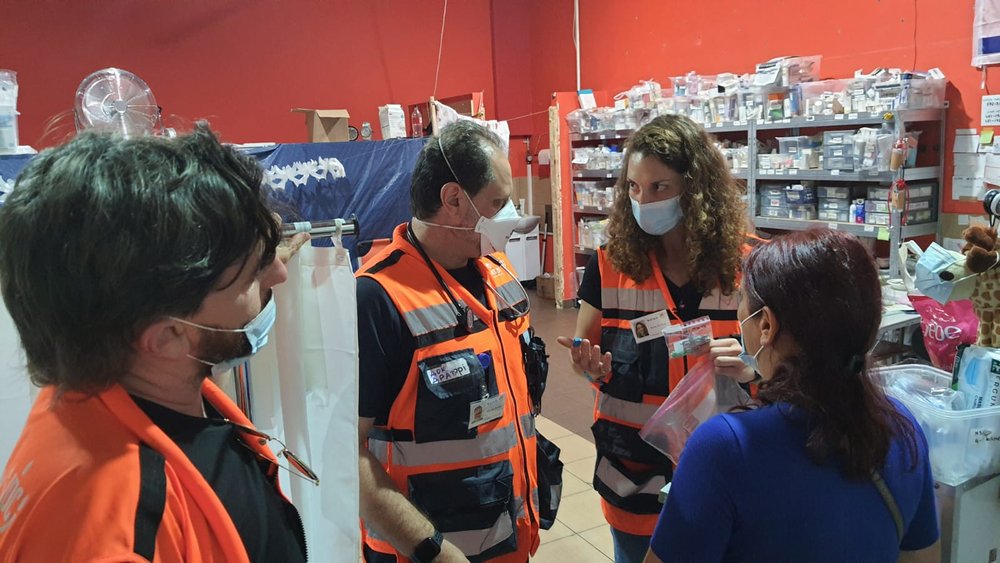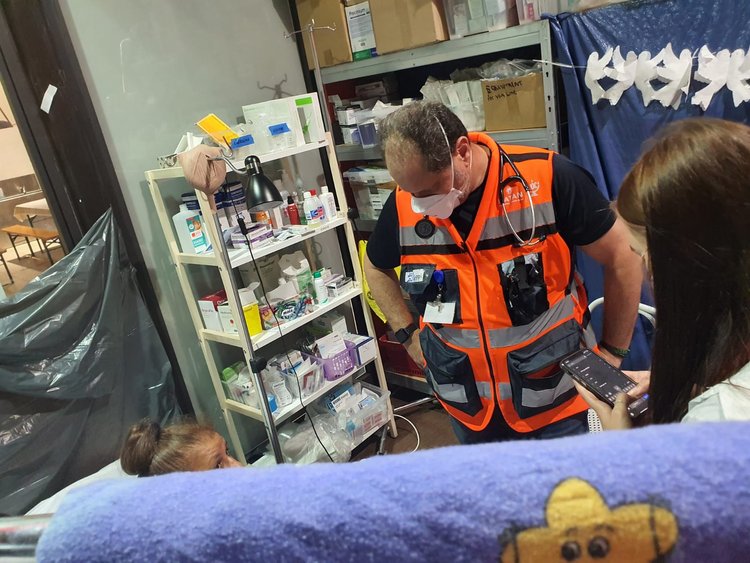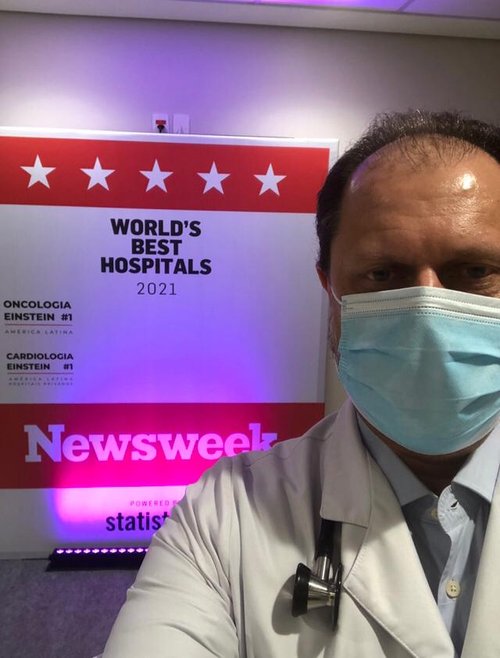10/9/22
“Volunteering with NATAN was one of the greatest experiences of my life. Seeing people in their worst misery; being able to bring a little bit of joy and a few moments of laughter – there is nothing like that.”
Interview with : Dr Marcelo Dratcu – NATAN volunteer doctor from Brazil, who served in the Ukrainian Refugee Relief Operation in Przemysl, Poland in August 2022.
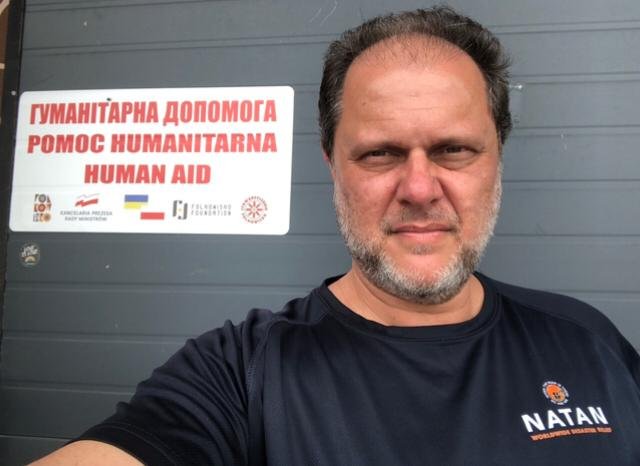
Volunteering in Poland with NATAN was really something unique and special. NATAN is amazing, based in Israel and sending Jewish and non-Jewish volunteers wherever they are needed. NATAN’s administration, organization and professionalism are admirable.
I learned about the 6 Cs scientific method for psychological aid that NATAN uses, and I believe it is excellent. This method is scientifically validated as well as very humanizing. Right now my friends and I are launching a YouTube channel called “Amazing.cast”. Of course, it was inspired by me being on the humanitarian mission. And it is a mission for me to reach more people, free of charge, and to bring them techniques, strategies, and scientifically validated ways to live better, to help people manage stress and anxiety, have better relationships and change their behavior so they become healthier and more well-being oriented. .
Please tell us how you heard about NATAN and what caused you to sign up.
When I saw the first images of the Russian attack on TV, I felt it was too surreal to be happening. I immediately decided that I wanted to do something about it. Since I couldn’t get there to fight, I understood that my role could be helping by doing what I do, which is psychosocial aid and internal and family medicine in general. I started looking for ways to get there. . I think it was one of the Hadassah’s directors who recommended to my friend, Henri, that I check out NATAN. So I went through the website, I applied and that was it. I searched for other doctors from Brazil who could come with me I didn’t just want to go myself, I wanted to bring more physicians. First I I had to look for them, which wasn’t easy. I talked to all the physicians. When I got their attention, I set up meetings – one-on-one first, then for all the three of us. The first meeting with the three of us was just fantastic and amazing. I knew we would go. Then I started coordinating, making reservations, gathering the paperwork and working out the details.
Speaking of your professional life, can you please tell us a little bit about your day-to-day life when you’re not volunteering?
As a physician, I work with the learning and search institute at Albert Einstein hospital. I created and I coordinate a course for health professionals on behavioral science applied to adherence and engagement for your patients – How to get the patients to do the things that you recommend. That’s a part of what I do as a behavioral medicine specialist. I work with patients on everything that has to do with emotional and behavioral and cognitive activities towards health and well-being especially stress management. I have a protocol that I created and have been using in the past 30 years based on Benson-Henry Institute of Mind-Body Medicine and mindfulness centers here. That’s another part of what I do. I also see patients as a general practitioner. My office is located in Albert Einstein Israelite Hospital, which is ranked as the best hospital in Latin America by Newsweek magazine. Day and night I see patients either in my office, online (through telemedicine), at the hospital or in their homes.
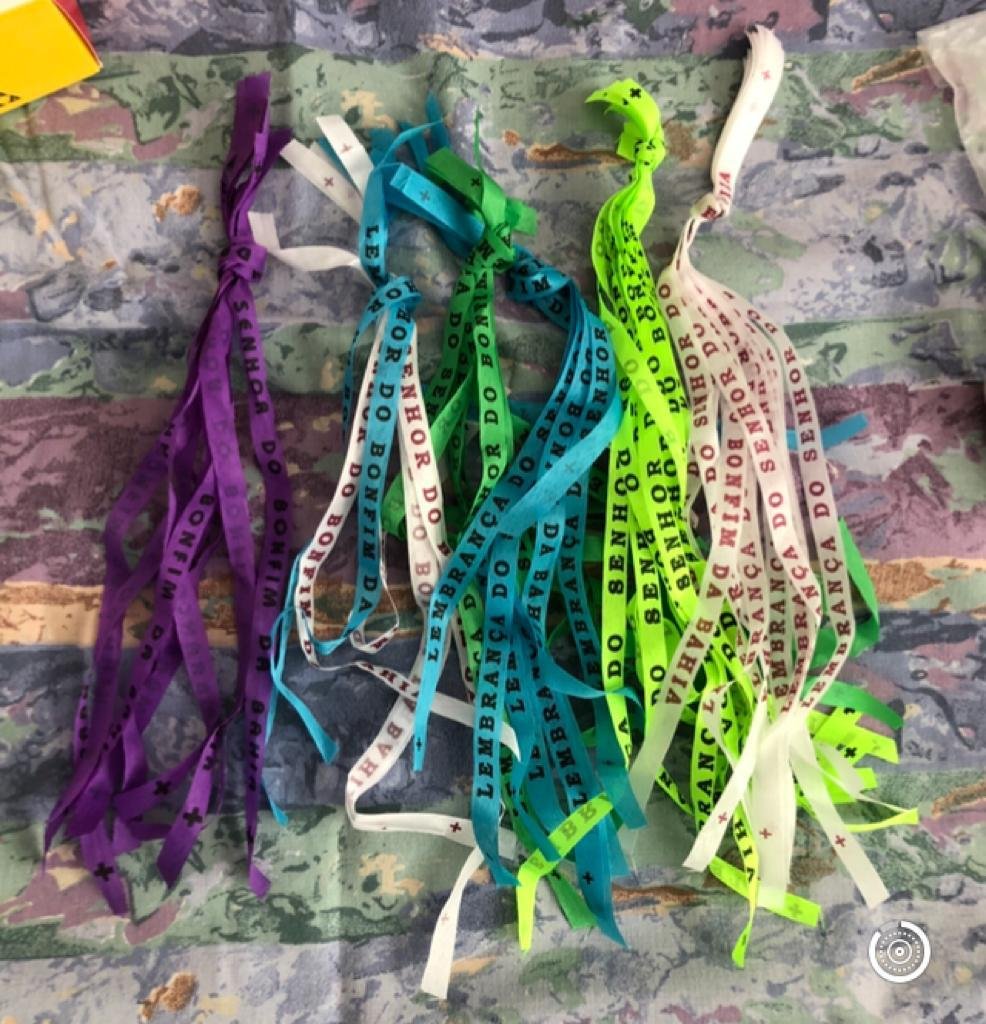
Bracelets of Hope – from Brazil to Poland
After this experience in Poland would you volunteer again?
Absolutely. Volunteering with NATAN was one of the greatest experiences of my life. Seeing people in their worst misery having a little bit of joy and a few moments of laughter – there is nothing like that. The whole experience was beyond my expectations especially because of people in our delegation. It was amazing, wonderful.
What was your most memorable experience in Poland?
I remember being called to see this young man, around 17 or 18 years old with a skin infection, an abscess because of a lesion. His mom was with him. I remember there were one or two siblings waiting outside our clinic. Medically speaking it was not very hard to resolve. The actual solution was to orient the patient, the refugee, to change their behaviors and habits for the next days during their trip. Part of our mission was to help these people to keep going. Also giving them strength, hope, and warmth. There were medical steps to take, but all of a sudden the mother burst in tears of despair. I thought to myself “of course, they are losing everything; they’re leaving their lives; their houses behind. Their homes and cities are being destroyed. It makes sense.” I learned that this woman has just lost her husband in the war. It was always the same thought in my mind “How can I give them a little joy in all this despair and tragedy? It’s not just being a doctor; I must do more.” I brought these bracelets with me that I had blessed here in Brazil. I told the family that it’s a present for them from the other side of the world. I asked them to wrap the bracelets around their wrists and make three wishes when they got to their destinations. I believe this family was going to Germany.
And when I showed this bracelet, the mother just stopped crying. And to see her smiling suddenly… And the kids came inside the clinic, and they hugged each other. The boy was happy… No words to describe the emotions. That was one of the most fantastic experiences and emotions for us.
Who is your role model?
I have a few role models – my parents, especially. My mom and my dad. Today I will tell you about my father. He came to Brazil with his family, fleeing from the Holocaust. He was born in Ukraine and he got here without speaking the language or knowing anything about Sao Paulo. Two years later he got in the most prestigious engineering university in Brazil in Sao Paulo, and he graduated. That’s an example of overcoming all kinds of problems, difficulties and focusing and just being great. Unfortunately, he left us when I was ten years old. He died of a heart attack. I have a few memories – I do remember him trying to be positive all the time and looking at problems and situation with calm, tranquility and trying to solve them instead of getting desperate. He had the right values. He was very interested in good health – he did sports, judo, and he had hobbies, he played harmonica, and he sailed on his sailing boat. The most important example he left me that I remember – he was always trying to stay positive. I don’t remember him ever complaining of anything at all. He never told me about the difficulties and horrors that he lived through during the Holocaust. And that amazes me. And one more very important thing. He taught me to always do the right thing, to always try and help people. He was always doing Tzedakah, helping people who worked with him, and family members. Maybe the most important teaching for me was to be honest, correct, do the right thing always, and help people.
Any inspirational words or motto that you live by?
My motto to live by is – “Always do the right thing. Be honest with yourself, be honest with others, and will the world. When you do the right thing, when you’re correct, things will come back to you in a good way.” Also, when you’re in a bad situation or in a bad mood or deep problems, remember – it will pass. Try to stay positive thinking that you are doing your best. Be kind to yourself, don’t feel more guilty than you should. Know that there are ways, techniques, and strategies to feel well, to manage and cope with stress; and seek help – look for good friends and professional help, when you are down, stressed out, burned out or bored out. These techniques exist. They are scientifically validated, and the right healthcare professional will help you, no doubt.
images: Marcelo enroute to Poland, with his team at work in the clinic at the Refugee Center in Przemysl, and back home in Sao Paulo at Albert Einstein Israelite Hospital
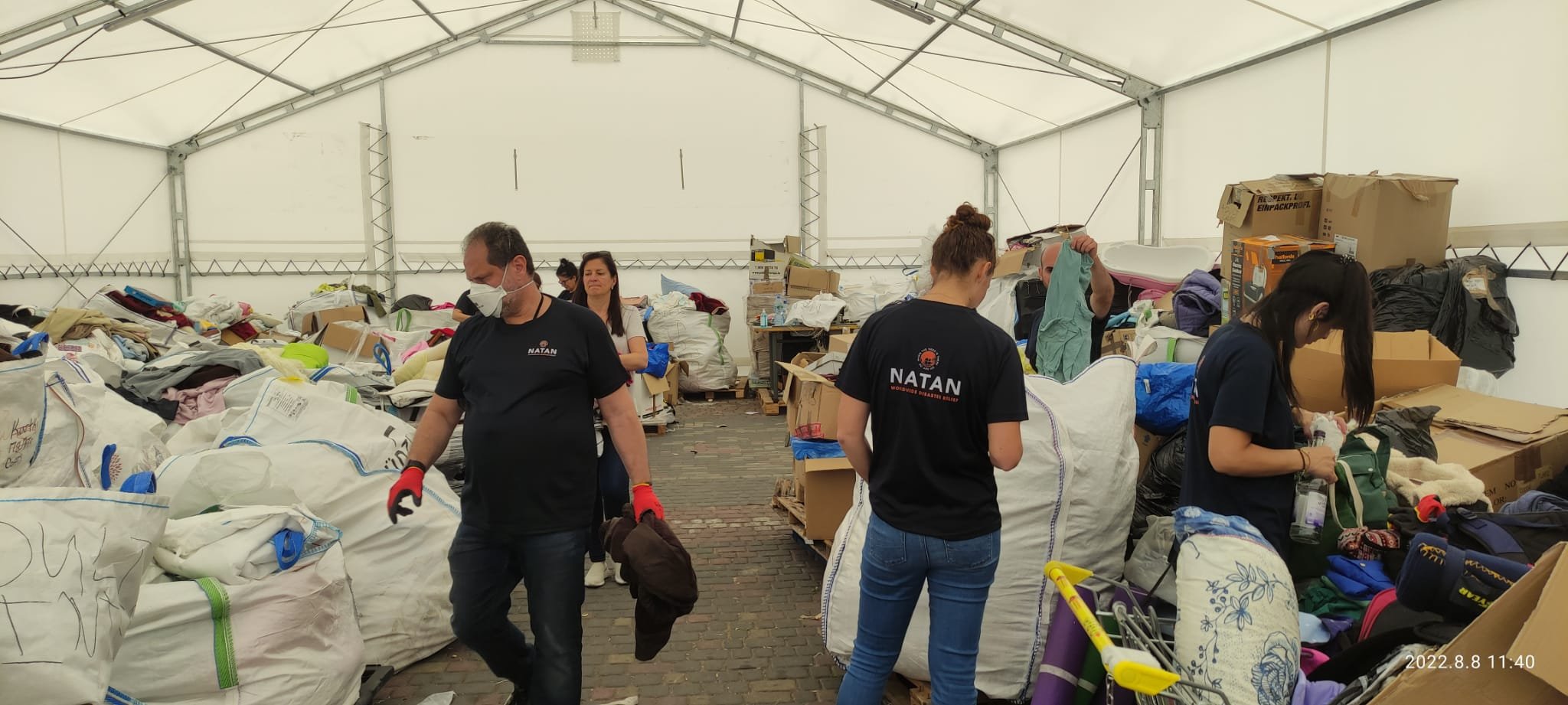
At a warehouse near the refugee center, sorting clothes and supplies donated to refugees

